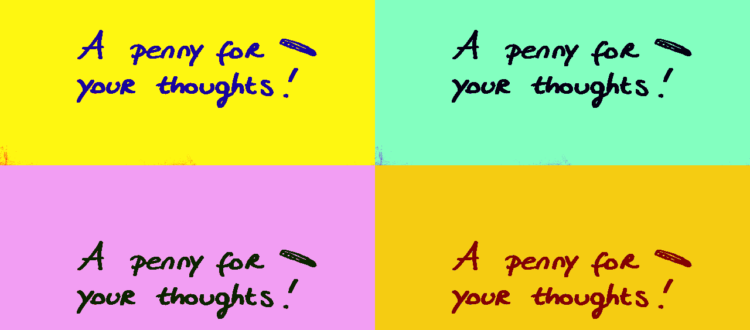Espressioni idiomatiche- II parte
Espressioni idiomatiche inglesi
La lingua inglese, come ogni altra, è ricca di espressioni idiomatiche cioè modi di dire, di solito difficili da tradurre se non facendo ricorso ad espressioni più o meno equivalenti nella lingua d’appartenenza.
Ci sono esempi che si possono cogliere al volo come “Cry over spilt milk”, cioè piangere sul latte versato e altri assolutamente incomprensibili come “Burn the midnight oil” per indicare l’azione di lavorare fino a tarda notte.
Queste le dieci espressioni idiomatiche della settimana; le spiegheremo in modo dettagliato nel contesto di una frase per aiutarvi ad utilizzarle nello speaking o nel writing quotidiano.
Potete inserirle in una mail, in un racconto o durante la conversazione in Sala Chat: l’importante è familiarizzare con le espressioni idiomatiche per cogliere e descrivere una situazione o un significato al pari di un native speaker.
1) A hot potato
Meaning: Something that people wish to avoid.
Example: The issue of human rights was a hot potato at the recent UN annual conference. Nobody was prepared to mention it.
2) A penny for your thoughts
Meaning: To ask what a person is thinking about.
Example: Q. “You seem very thoughtful today Jim….a penny for your thoughts?”
A.” Oh, I was just thinking about the story you told me yesterday: it was quite touching”
3) Actions speak louder than words
Meaning: People’s intentions/value can be better judged by actions rather than words
Example: The government says it believes in education but continues to cut investments. The actions speak louder than words.
4) Add insult to injury
Meaning: To worsen an unpleasant situation.
Example: “He said my jeans didn’t suit me and to add insult to injury he also said I need to lose weight!”
5) An arm and a leg
Meaning: To mean that something is very expensive
Example: ” Buying a flat in the city centre is out of question! It’d cost me an arm and a leg!”
6) At the drop of a hat
Meaning: If you do something at the drop of a hat, it means you do it immediately, without any delay or hesitation, at the slightest signal.
Example: If you need help, just call Edward: he can come at the drop of the hat.
Where does it come from? Read here!
The phrase ‘at the drop of a hat’ originates in the 19th century. During that time it was common to signal the beginning of a fight or race by either dropping a hat or sweeping it in a rapid downward motion.
7) Back to the drawing board
Meaning: when an idea fails and it’s time to start from the beginning
Example:
- “Do you like my plans for the business?”
A: “I’m sorry, but the costs involved are too high.
Q: “What should we do, then?”
A: “Let’s go back to the drawing board and start again”.
Where does it come from? Read here!
8) Under the weather
Meaning: Feeling ill or suffering from a hangover
Example 1: Sarah said she was feeling a bit under the weather and couldn’t take part to the meeting.
Example 2: After nine pints of beers on Friday night, Tom was under the weather again.
9) Your guess is as good as mine
Meaning: To have no idea about a specific topic, do not know the answer to a question
Example: Q:”How far do you think the airport is?”
A: “Your guess is as good as mine”.
10) Sit on the fence
Meaning: To delay making a decision
Example: “You can’t go on sitting on the fence: make up your mind!”
E voi, quali utilizzate?
Se questo articolo vi è piaciuto, lasciateci un commento e condividetelo sui social. L’appuntamento con la III parte delle espressioni idiomatiche è per la settimana prossima. Non mancate!


